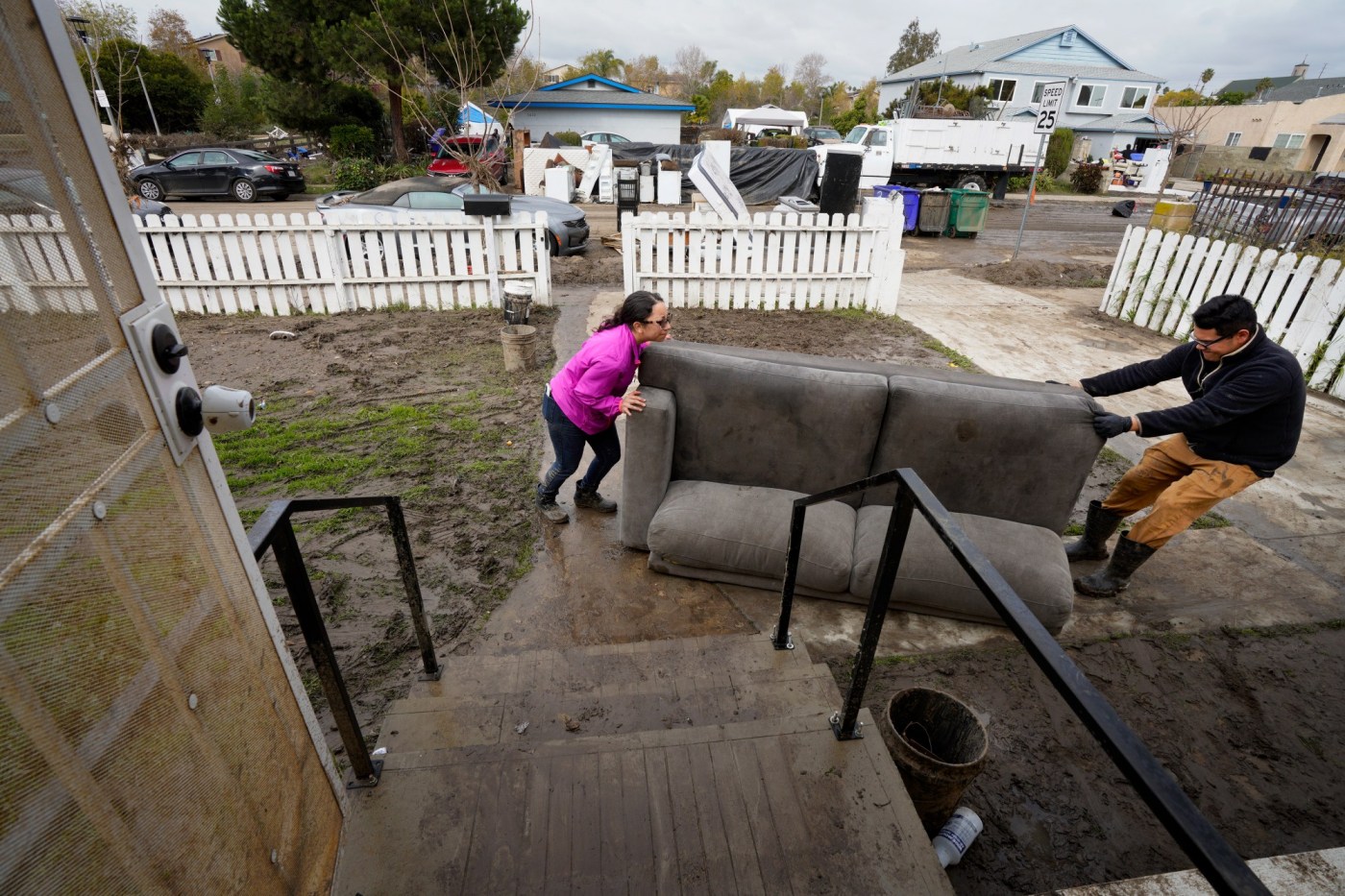
The question of who bears responsibility for the damage from catastrophic flooding in January 2024 continues to play out in complex litigation — with the city of San Diego continuing to argue that local residents and companies should have done more to maintain storm channels.
The city has now filed more than 20 cross-complaints against more than a dozen parties, including at least two flood victims, maintaining that they were responsible for drainage on their properties or took steps that could have increased storm runoff.
Related Articles
‘A hidden threat’: Bay Area lawmaker warns of rising groundwater risks, seeks study funding
California’s property insurance apocalypse: Some progress, no immediate relief
87% of Californians are concerned home insurance will rise due to climate change
Uncertainty of future FEMA disaster funding alarms Bay Area emergency planners
Highway 37 widening project in line for $73 million grant
“These third parties either own, maintain or control private drainage facilities that connect into the city’s infrastructure or they have otherwise obstructed the city’s facilities or developed their property in such a way as to overwhelm the city’s existing infrastructure,” the City Attorney’s Office said.
The accusations come in response to a wave of litigation that the city of San Diego in particular has faced from hundreds of people ever since stormwater overwhelmed city infrastructure early last year.
More than 1,500 people are suing the city in 53 lawsuits, saying its failure to maintain its storm channels led to the catastrophic flooding that displaced thousands, mainly in underserved neighborhoods in the Chollas Creek watershed. Many people are still rebuilding.
In May, the La Mesa-Spring Valley School District also filed a cross-complaint against two residents and the County of San Diego, alleging they are liable for flood damage.
A cross-complaint is a way for the city to initiate its own claim against parties it considers at least partly responsible for the flood damage — and that it believes should have to bear liability financially.
“If the city has any liability, they want to be able to get some contribution from a codefendant,” explained William Slomanson, a retired professor at Thomas Jefferson School of Law and a retired defense attorney.
In five of the cross-complaints filed from May through July, the city sued several of the same parties — including two flood victims who own homes in the community of Southcrest.
On Wednesday, January 24, 2024, residents of Beta Street begin the cleanup after their homes flooded two days earlier. (Nelvin C. Cepeda / The San Diego Union-Tribune)
Evan Walker, one of the lawyers representing flood victims suing the city, questions the city’s strategy of suing flood victims — especially multiple times over.
“I don’t think it was necessary or even appropriate,” he said, adding that even if a flood victim did something to contribute to the damage, a lawsuit doesn’t seem like a reasonable course of action.
“Just tell him you’re not going to pay him a hundred grand; tell him you’re gonna pay him 50,” Walker said. “Don’t sue him.”
Along with the flood victims, the city is also cross-suing Home Depot, which owns a property in the Mountain View neighborhood, along with a homeowners association in Southcrest.
Other cross-defendants include a real estate developer and a construction company that contracted with the city for work on the Clay Avenue Mini Park in Logan Heights.
In addition to the parties it names as defendants, the city’s cross-complaints also list up to 1,000 unidentified defendants — people or entities that could also be responsible.
It has so far named four of those defendants in one of the cross-suits. The City Attorney’s Office said last month it doesn’t expect to name all 1,000.
The City Attorney’s Office did not comment on its legal strategy.
But to Slomanson, it looks standard — including its decision earlier this year to try to reduce the number of claims against it over its management of stormwater infrastructure in southeastern San Diego. In that lawsuit, a Vista judge ruled in March that only one claim would be thrown out and five would proceed for now.
Walker said that the plaintiffs’ lawyers have until Sept. 12 to consolidate all 53 complaints into a single master complaint, with a status conference with the judge set for Sept. 18.
Then he says the case could go to trial by next summer, barring a settlement before then.
Martha Navarro recalls when she first saw the flood by watching remotely on her security camera and noticed her puppy nearly drowning on the back porch of her home on Beta Street in Southcrest in January 2024. (Nelvin C. Cepeda / The San Diego Union-Tribune)
Martha Navarro, a Beta Street resident who is suing the city and has not been named as a cross-defendant, expects the case to take years to reach a resolution.
Still, she’ll be glad when it’s over — with the hope of getting money from the city to cover the damage her home sustained during the floods. Navarro and her husband spent $20,000 to $25,000 last year to replace their family’s damaged appliances and belongings.
The Navarros are first-time homeowners at their Southcrest home with two young sons, but she and her husband are talking about using money from the lawsuit for a down payment on a new house in another neighborhood to avoid a future flood.
“We still have little ones,” she said. “If it happens again, I wouldn’t want to be in the house with my kids.”